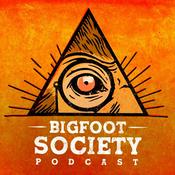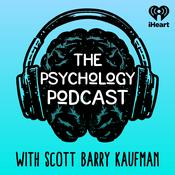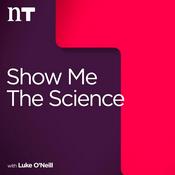2777 episodes

Heino Falcke and Jörg Römer, "Light in the Darkness: Black Holes, the Universe, and Us" (HarperCollins, 2021)
09/1/2026 | 1h 13 mins.
An astrophysicist chronicles his quest to photograph a black hole and reflects on its spiritual ramifications in this international-bestselling memoir. On April 10, 2019, award-winning astrophysicist Heino Falcke presented the first image ever captured of a black hole at an international press conference—a turning point in astronomy that Science magazine called the scientific breakthrough of the year. That photo was captured with the unthinkable commitment of an intercontinental team of astronomers who transformed the world into a global telescope. While this image achieved Falcke's goal in making a black hole "visible" for the first time, he recognizes that the photo itself asks more questions for humanity than it answers.Light in the Darkness takes us on Falcke's extraordinary journey to the darkest corners of the universe. From the first humans looking up at the night sky to modern astrophysics, from the study of black holes to the still-unsolved mysteries of the universe, Falcke asks, in even the greatest triumphs of science, is there room for doubts, faith, and a God? A plea for curiosity and humility, Light in the Darkness sees one of the great minds shaping the world today as he ponders the big, pressing questions that present themselves when we look up at the stars. Learn more about your ad choices. Visit megaphone.fm/adchoices Support our show by becoming a premium member! https://newbooksnetwork.supportingcast.fm/science-technology-and-society

Marc Berman, "Nature and the Mind: The Science of How Nature Improves Cognitive, Physical, and Social Well-Being" (Simon and Schuster, 2025)
08/1/2026 | 33 mins.
Dr. Marc Berman, the pioneering creator of the field of environmental neuroscience, has discovered the surprising connection between mind, body, and environment, with a special emphasis on the natural environment. He has devoted his life to studying it. If you sometimes feel drained, distracted, or depressed, Dr. Berman has identified the elements of a “nature prescription” that can boost your energy, sharpen your focus, change your mood, and improve your mental and physical health. He also reveals how central attention is to all of these functions, and how interactions with nature can restore it. Nature and the Mind is both an introduction to a revolutionary new scientific field and a helpful guide to better living. In these pages, he draws on his original research and research from others and shares life-altering findings such as:-Just eleven more trees on your street can decrease cardio-metabolic disorders like stroke, diabetes, and heart disease.-A short walk in nature can improve attention by almost twenty percent, decrease depression symptoms, and make people feel more spiritual and self-reflective.-More greenspace around schools and homes is related to better school performance, reduced crime, and improved working memory.-Many of these effects can be achieved even if you don’t like nature.With an engaging and approachable style, Dr. Berman offers the nature prescription for physical health, mental health, and social health. Importantly, you don’t have to pack up your house and move to the country to participate. The nature prescription includes practical ways to bring the outside indoors and to “naturize” our spaces, no matter where you live. The positive effects of nature don’t just end at the individual; contact with nature can make people more caring towards one another, encourage people to care more for the environment, and more.This groundbreaking guide explains why and how nature is good for our brains and bodies and gives us a window into fundamental aspects of our psychology and physiology that can be improved through interactions with nature. Learn more about your ad choices. Visit megaphone.fm/adchoices Support our show by becoming a premium member! https://newbooksnetwork.supportingcast.fm/science-technology-and-society

Rachel Midura, "Postal Intelligence: The Tassis Family and Communications Revolution in Early Modern Europe" (Cornell UP, 2025)
07/1/2026 | 41 mins.
Rachel Midura joins Jana Byars to talk about Postal Intelligence: The Tassis Family and Communications Revolution in Early Modern Europe (Cornell UP, 2025) connects and situates histories of the post and government intelligence alongside print technology and state power in the wider context of the early modern communications revolution. In the sixteenth century, postal services became central to domestic governance and foreign policy enterprises, extended government reach and surveillance, and offered new control over the public sphere. Rachel Midura focuses on the Tassis family, members of which served as official postmasters to the dukes of Milan, the pope, Spanish kings, and Holy Roman emperors. Using administrative records and family correspondence, she follows the Tassis family, their agents, and their rivals as their influence expanded from northern Italy across Europe. Postal Intelligence shows how postmasters and postmistresses were key players in early modern diplomacy, commerce, and journalism, whose ultimate success depended on both administrative ingenuity and strategic ambiguity. Learn more about your ad choices. Visit megaphone.fm/adchoices Support our show by becoming a premium member! https://newbooksnetwork.supportingcast.fm/science-technology-and-society

Peter Frankopan, "The Earth Transformed: An Untold History" (Knopf, 2023)
07/1/2026 | 53 mins.
The Earth Transformed. An Untold History (Knopf, 2023) is a captivating and informative book that reveals how climate change has been a driving force behind the development and decline of civilizations across the centuries. The author, Peter Frankopan, takes readers on a journey through history, showcasing how natural phenomena such as volcanic eruptions, El Niño, and solar flare activity have shaped the course of human events. Frankopan's extensive research, coupled with his accessible writing style, makes for an engaging read that reframes our understanding of the world and our place in it. One of the strengths of The Earth Transformed is the way in which Frankopan connects seemingly disparate events to highlight the far-reaching impact of climate change. For example, he explains how the Vikings emerged as a result of catastrophic crop failure, and how the collapse of cotton prices due to unusual climate patterns led to regime change in eleventh-century Baghdad. Through such connections, Frankopan demonstrates how past empires that failed to act sustainably were met with catastrophe, providing valuable lessons for our current environmental crisis. Overall, The Earth Transformed is a timely and important book that sheds light on the enduring relationship between humans and the natural world. It challenges readers to reckon with our species' impact on the environment and to consider how we can act sustainably to prevent further harm. Frankopan's interdisciplinary approach, combining historical research with scientific insights, makes for a compelling and thought-provoking read that will leave readers with a new perspective on the world around us. Javier Mejia is an economist at Stanford University who specializes in the intersection of social networks and economic history. His research interests also include entrepreneurship and political economy, with a particular focus on Latin America and the Middle East. He holds a Ph.D. in Economics from Los Andes University. Mejia has previously been a Postdoctoral Associate and Lecturer at New York University-Abu Dhabi and a Visiting Scholar at the University of Bordeaux. He is also a frequent contributor to various news outlets, currently serving as an op-ed columnist for Forbes Magazine. Learn more about your ad choices. Visit megaphone.fm/adchoices Support our show by becoming a premium member! https://newbooksnetwork.supportingcast.fm/science-technology-and-society

Aaron Bateman. "Weapons in Space: Technology, Politics, and the Rise and Fall of the Strategic Defense Initiative" (MIT Press, 2024)
06/1/2026 | 20 mins.
A new and provocative take on the formerly classified history of accelerating superpower military competition in space in the late Cold War and beyond. In March 1983, President Ronald Reagan shocked the world when he announced the Strategic Defense Initiative (SDI), derisively known as “Star Wars,” a space-based missile defense program aimed at protecting the US from nuclear attack. In Weapons in Space, Aaron Bateman draws on recently declassified American, European, and Soviet documents to provide an insightful account of SDI, situating it within a new phase in the militarization of space following the collapse of superpower détente in the 1970s. In doing so, Bateman reveals the largely secret role of military space technologies in late–Cold War US defense strategy and foreign relations.In contrast to existing narratives, Weapons in Space shows how tension over the role of military space technologies in American statecraft was a central source of SDI's controversy, even more so than questions of technical feasibility. By detailing the participation of Western European countries in SDI research and development, Bateman reframes the militarization of space in the 1970s and 1980s as an international phenomenon. He further reveals that even though SDI did not come to fruition, it obstructed diplomatic efforts to create new arms control limits in space. Consequently, Weapons in Space carries the legacy of SDI into the post–Cold War era and shows how this controversial program continues to shape the global discourse about instability in space—and the growing anxieties about a twenty-first-century space arms race. Our guest is Aaron Bateman, an Assistant Professor of History and International Affairs at GWU. Our host is Eleonora Mattiacci, an Associate Professor of Political Science at Amherst College. She is the author of "Volatile States in International Politics" (Oxford University Press, 2023). Learn more about your ad choices. Visit megaphone.fm/adchoices Support our show by becoming a premium member! https://newbooksnetwork.supportingcast.fm/science-technology-and-society
More Science podcasts
Trending Science podcasts
About New Books in Science, Technology, and Society
Listen to New Books in Science, Technology, and Society, More or Less and many other podcasts from around the world with the radio.net app
Get the free radio.net app
- Stations and podcasts to bookmark
- Stream via Wi-Fi or Bluetooth
- Supports Carplay & Android Auto
- Many other app features
Get the free radio.net app
- Stations and podcasts to bookmark
- Stream via Wi-Fi or Bluetooth
- Supports Carplay & Android Auto
- Many other app features

New Books in Science, Technology, and Society
download the app,
start listening.



































